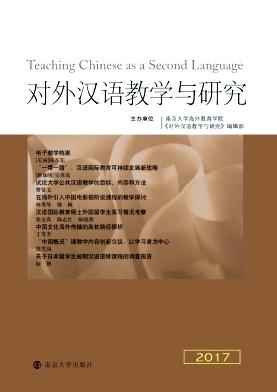Chinese Heritage Language Maintenance in the Context of Superdiversity
引用次数: 1
Abstract
Situated in the context of migration trends toward superdiversity in Anglophone countries, this study conceptualizes Chinese heritage language (CHL) learners as complex social beings with increasingly diverse language repertories, migration histories, and socioeconomic statuses. Failing to understand such diversity in language maintenance and language shift may lead to oversimplifying the process of Chinese language maintenance and consequently perpetuating educational inequities in overseas Chinese education. The study analysed questionnaire data from 56 CHL learners who identified as dialect speakers in a New Zealand university. Findings show that CHL learners are indeed a linguistically and socioculturally diverse group. There is a clear shift towards English among participants as they approached adulthood, with some also speaking non-Chinese languages like Khmer. While Chinese dialects remain prevalent within their homes, younger generations exhibit a decrease in the number of Chinese dialects spoken. Surprisingly, Mandarin, despite being the primary language resource for Chinese education, is underutilized and tends to remain at a low proficiency level. This study concludes by offering implications to policymakers and Chinese curriculum developers to provide genuine support for maintaining and learning the Chinese language within the increasingly diverse Chinese diaspora.超级多样性背景下的中国遗产语言维护
在以英语为母语的国家,中国传统语言学习者是一个复杂的社会群体,他们的语言储备、移民历史和社会经济地位日益多样化。如果不了解这种语言维护和语言转换的多样性,可能会使汉语维护过程过于简单化,从而使海外汉语教育中的教育不公平现象永久化。该研究分析了来自新西兰一所大学的56名母语学习者的问卷调查数据。研究结果表明,汉语学习者确实是一个语言和社会文化多样化的群体。随着参与者接近成年,他们明显转向英语,有些人还会说高棉语等非汉语语言。虽然汉语方言在他们的家庭中仍然很流行,但年轻一代使用汉语方言的数量却在减少。令人惊讶的是,尽管普通话是中国教育的主要语言资源,但它没有得到充分利用,而且往往仍然处于较低的熟练程度。本研究的结论是为政策制定者和汉语课程开发者提供启示,为日益多样化的华侨华人保持和学习汉语提供真正的支持。
本文章由计算机程序翻译,如有差异,请以英文原文为准。
求助全文
约1分钟内获得全文
求助全文

 求助内容:
求助内容: 应助结果提醒方式:
应助结果提醒方式:


